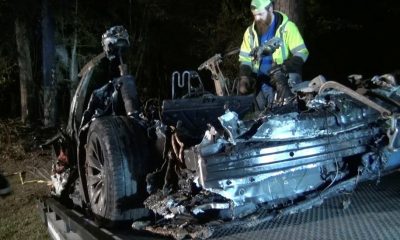“While you have government investing with policy, some of the infrastructure and intellectual property,” he said.
Auto
Driverless cars not coming anytime soon – Experts verdict


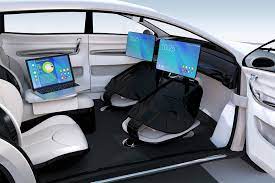
The dream of having self-driving or driverless cars in showrooms and on major roads of the world including Africa may not materialise anytime soon going by latest developments in the auto industry.
Last month, Tesla CEO Elon Musk wrote in a tweet, stated, “Generalised self-driving is a hard problem, as it requires solving a large part of real-world AI. Didn’t expect it to be so hard, but the difficulty is obvious in retrospect.”
Musk is definitely singing a new tone compared to his earlier comment that by 2020, there would be “over a million cars with full self-driving software everything.”
To his surprise, achieving fully autonomous driving is a lot more complicated than one might think. Apart from the countless technological obstacles, other issues that need to be considered are cybersecurity, regulatory restrictions and wider-scale infrastructural necessities, according to a Tuesday August 24 analysis by an online journal, Just Auto.
A professor of urban mobility, Hussein Dia, in an article he contributed to Conversation, an international magazine, notes that self-driving cars are still a long way to come and recalls a recent crash of a Tesla car in the United States, in which two people died, as igniting the debate about the safety of self-driving technologies.
The crash was said to have occurred despite special features in Tesla cars such as autopilot meant for monitoring surrounding traffic and lane markings.
Experts point out that the technology required for fully autonomous vehicles that do not need any human supervision is still not mature enough.
Self-driving or autonomous vehicles are said to require processing power orders of magnitude greater than what is usually found in modern vehicles, banks of expensive sensors with multiple points of redundancy, and an infallible software system that handles the driving task while ensuring the safety of occupants and pedestrians.
Dia talks about six levels of autonomous vehicle technology, ranging from level 0 (a traditional vehicle with no automation) to level 5 (a vehicle that can independently do anything a human driver can).
Most automated driving solutions available on the market require human intervention and this puts them at level 1 (driver assistance, such as keeping a car in a lane or managing its speed) or level 2 (partial automation, such as steering and speed control).
Level 3 vehicles have more autonomy and can make some decisions on their own, but the driver must still remain alert and take control if the system is unable to drive.
In the past few years, several fatal crashes involving level 2 and level 3 vehicles were largely attributed to human error. Vehicle manufacturers and regulators have thus been criticised for not doing enough to make these systems more resilient to misuse by inattentive drivers.
For higher levels of automation, a human driver will not be involved. The driver would effectively be replaced by the AI self-driving software.
Level 4 is a “self-driving” vehicle that has a bounded scope of where and when it will drive. The best example of a level 4 vehicle is Google’s Waymo robotaxi project. But like those being produced ny others, it is not commercially available to the public.
Level 5 represents a truly autonomous vehicle that can go anywhere and at any time, similar to what a human driver can do.
Experts note that the transition from level 4 to level 5, however, is harder than transitions between other levels, and may take years to achieve.
While the technologies required for higher levels of automation are advancing rapidly, producing a vehicle that can complete a journey safely and legally without human input appears to remain a big challenge.
One of the challenges is the self-driving software, which is based on artificial intelligence (AI) and deep learning neural networks that include millions of virtual neurons that mimic the human brain. This is the area in which current science is still lacking.
This process involves the collection of a massive amount of raw data.
Experts note that training neural nets is something like holding a child’s hand when crossing the road and teaching the child to learn through constant experience, replication and patience. The focus will thus lie on developing more brain-like AI.
Chief Technology Officer at Dell, Charles Sevior, says the world is still 10 years away from level 5 autonomy.
Thomas Dannemann, director of product marketing at Qualcomm, appears more optimistic as he predicts that fully autonomous vehicles will hit the road in “the second half of this decade”.
Dia lists three key barriers to be overcome before they can be safely introduced to the market as technology, regulations and public acceptance.
He says in his conclusion, “While it is necessary to test the performance of self-driving software under real-world conditions, this should only happen after comprehensive safety testing and evaluation. Regulators should come up with a set of standard tests and make companies benchmark their algorithms on standard data sets before their vehicles are allowed on open roads.”
He also says, “The public must be involved in decisions regarding self-driving vehicle deployment and adoption. There is a real risk of undermining public trust if self-driving technologies are not regulated to ensure public safety. A lack of trust will affect not only those who want to use the technology, but also those who share the road with them.
“Finally, this incident should serve as a catalyst to bring regulators and industry to establish a strong and robust safety culture to guide innovations in self-driving technologies.”
Autonomous cars are no doubt tomorrow’s transport luxury, but analysts are unanimous in their view that it will take some time before people can have a pleasurable cruise in a self-driving vehicle.
At the moment, human drivers are found to be better than robot drivers. At least people are able to rapidly view the world around them to make the right decisions about the prevailing circumstances. That is not the case with the AI.
“While emergent technology can easily and accurately detect and classify objects, it still can’t mimic the intricate complexities of driving. Autonomous vehicles not only need to detect and recognise humans and other objects but must also interact with, understand and react to how these things behave.
According to a report by verdict.co.uk, while emergent technology can easily and accurately detect and classify objects, it still can’t mimic the intricate complexities of driving.
It adds that autonomous vehicles not only need to detect and recognise humans and other objects but must also interact with, understand and react to how these things behave.
Auto
CNG conversion centres now 170, FG targets 200 Dec 31
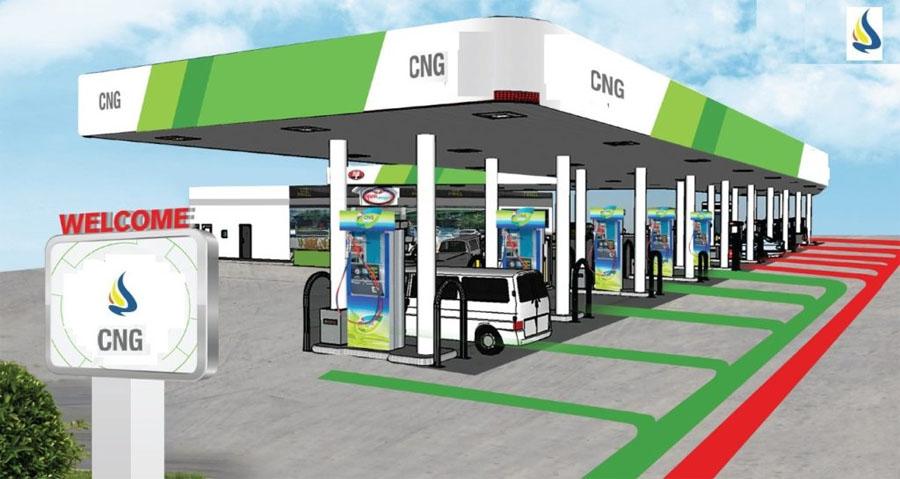
CNG conversion centres now 170, FG targets 200 Dec 31
The Presidential Compressed Natural Gas Initiative (P-CNGI) on Wednesday announced that the CNG conversion centres in the country are now 170.
It was upbeat that the 170 CNG conversion centres in Nigeria would increase to 200 at the end of December 2024.
The centres hit 170 with the commissioning of Portland Gas Conversion centres in Kado, Abuja.
Speaking with reporters, the PCNGI Chief Executive, Engr. Michael Oluwagbemi, said the P-CNGI which has doubled its target for 2024, is hopeful of hitting 500 conversion centres next year.
His words: “Before the end of this year, I promise in the next two weeks, we will get to 200. We are already looking for and certifying at least an additional 35 to 40 on our record.
“I believe we will get to 40 at the end of this year. And that is double our target. You remember this time last year, I told you our target was 100 and now 200.
“Next year, we have set a target of 500 for us and I believe we will blow.”
He recalled that from the seven conversion centres of 2023, there are now 170 centres in Nigeria.
According to him, all the conversion centres are owned by private-sector investors.
“We went from seven conventional centres, that with these now, I easily would say we are around 170.
“So today, from seven to 170, there is not a single one of those that were built by the Federal Government of Nigeria,” he said.
He urged Portland Gas Limited to increase its working hours from 24 to the present 24 hours.
Meanwhile, the Portland Gas Limited, Chief Executive Officer, Engr. Folajimi Mohammed said the workshop which opens 12 hours daily, can convert a car within one hour.
READ ALSO:
- NAFDAC destroys N5bn fake, expired products in Aba
- Speaker Abbas to Tinubu: Your reforms have disrupted status quo
- Abuja demolition: Soldiers attack FCTA officials, seize vehicles
He said it is a full state-of-the-art centre, comprising the mechanical, electrical, calibration, and of course which cannot be done without gas.
He said: “So what we do here is a Turkey solution, where from the conversion part of it, you can make sure that when you leave here within an hour, thereabouts, you are able to make sure that you have a fully converted CNG car.
“And when I mean fully converted CNG car, I mean, it is still a hybrid. You can have the option to switch from petrol to gas where you want to.”
According to him, the tanks that are presently installed in the vehicles are durable for 20 years.
He said since the infrastructure is limited in the country, it is advisable to convert the vehicles in a manner they can use other fuels in addition to CNG.
Mohammed said, “We know the gas infrastructure is just about to improve. “Well, for now, what we have, the limited availability of the infrastructure, by making sure that you don’t do 100% conversion. I can always switch to petrol in the event of any emergencies.”
He said being methane, the gas is very safe as it is lighter than air.
Besides, Oluwagbemi said a free interstate transportation will be provided in the Federal Capital Territory between during the Yuletide.
According to him, six buses will be added to the fleet.
He said, “You know in Abuja today we have 16 buses running Gwagwalada to Keffi and Nyanya as well as in Nigeria that project is already ongoing and it will be expanded to interstate this week.
“We are going to put additional six buses to run interstate here in Abuja and neighbouring cities. We are just providing free transportation programme during the yuletide period.”
Speaking, the National Agency for Science and Engineering Infrastructure (NASENI) Executive Vice Chairman, Khalil Suleiman Halilu recalled that the CNG journey started a long time ago.
He added that the CNG of Portland is a first of its kind in terms of partnership and private sector.
He said in the partnership, the government provides the policy, infrastructure, and intellectual property.
Auto
Coscharis, Toyota, Globe, Weststar, CFAO, others that win big at NAJA Auto Awards
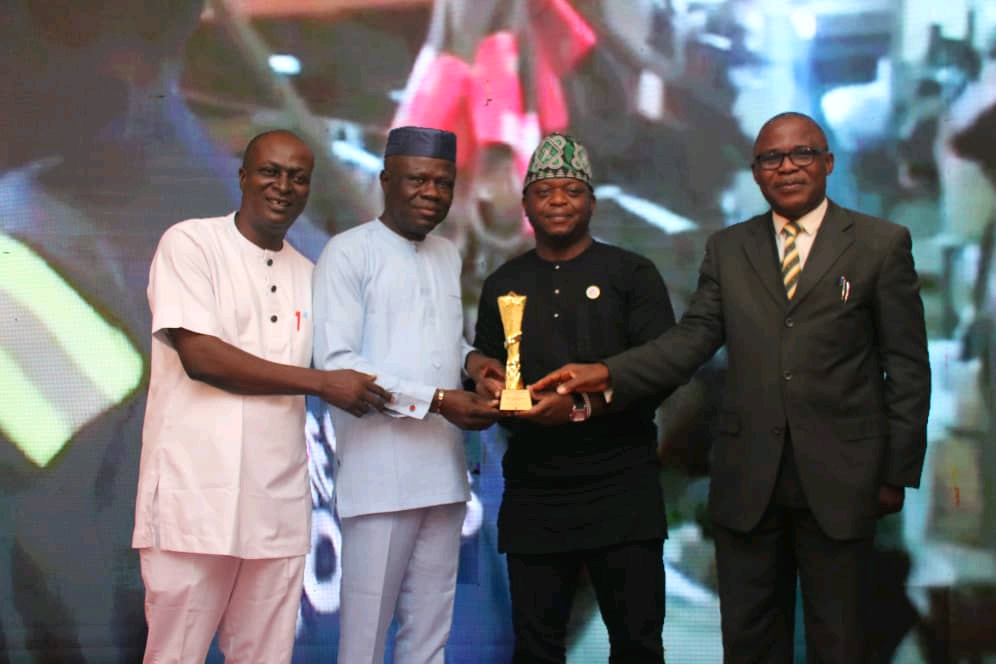
Coscharis, Toyota, Globe, Weststar, CFAO, others that win big at NAJA Auto Awards
Globe Motors, Coscharis Motors, Toyota Nigeria, CFAO, Weststar Associates and Lanre Shittu (LSM) are among big winners at the 2024 NAJA (Nigerian Automotive Journalists Association) Auto Awards.
The prestigious event, which held on Wednesday December 11 at Oriental Hotel, Victoria Island, Lagos recognized various categories within the industry, ranging from vehicle innovation to service excellence.
As earlier announced Mikano Motors’ Changan CS55 beat Toyota Corolla and Kia Rio to win the coveted 2024 car-of-the-year prize.
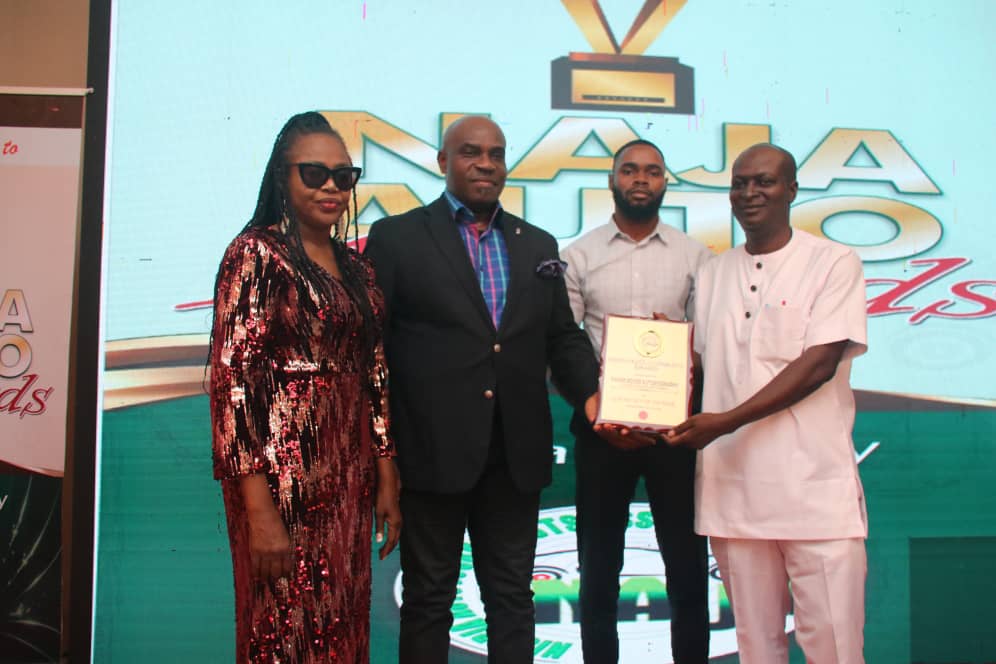
Globe Motors emerged as the Most Resilient Company of the Year, while Coscharis Motors bagged the Multi-Luxury Brand of the Year along with the luxury SUV of the year with Range Rover Autobiography. Toyota Nigeria Limited (TNL) and MD/CEO of Lanre Shittu Motors (LSM) were honoured as Auto Company of the Decade and Auto Personality of the Year respectively.
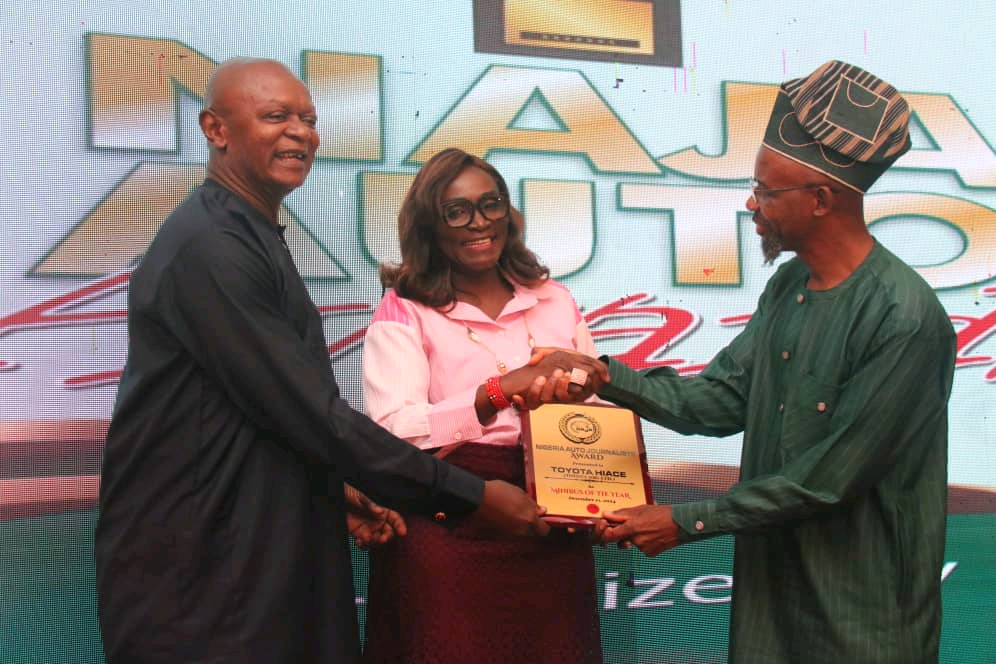
Also, CFAO won the Outstanding After-Sale Service, Product Launches of the Year with the Toyota Land Cruiser Prado and Suzuki Vitara, and the Most Enterprising Auto Company, while Chief Chidi Anyaegbu MFR (Founder, Chisco Motors) was recognized as the Transport icon of the Year; Mrs. Karima Okunola of Mikano Motors bagged the Auto Marketing Manager of the Year.
The companies were lauded for their commitment to providing quality vehicles and top-notch aftersales services, which have contributed to their solid reputation in the Nigerian auto market over the years.
Other notable winners included Innoson Vehicle Manufacturing, which was celebrated for its pioneering role in local vehicle production; Nord took home CNG-powered mini bus brand, and A9 launch recognition.
Weststar’s Mercedes-Benz was declared luxury brand of the year and the S-Class won luxury car of the year.
Carloha with its handling of Chery was adjudged the most innovative company of the year, just as the Chery Tiggo 8 Pro launch received a recognition.
While Dangote Sinotruk won the heavy duty truck manufacturer of the year, Lanre Shittu’s JAC was again awarded the heavy duty truck of the year. Taiwo Shittu, MD of the LSM emerged Auto Personality of the Year. His later father and founder of the company received a posthumous award.
RT Briscoe bagged the workshop of the year award; Dana Motors’ Kia Sonet won the best compact SUV prize, and the mini bus assembler of the year went to Jet System.
In his speech, Chairman of NAJA, Mike Ochonma, said, “This year’s NAJA Auto Awards highlights not just the achievements of the big names in the industry, but also the rising stars who are shaping the future of Nigeria’s automotive landscape.”
Auto
Nigeria’s auto industry in limbo over policy delay – LCCI sectoral head
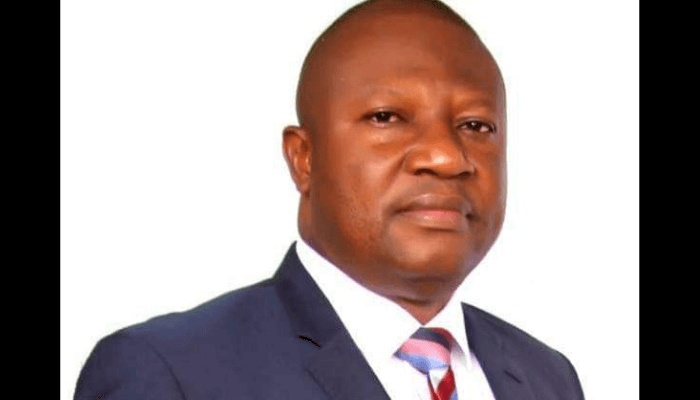
Nigeria’s auto industry in limbo over policy delay – LCCI sectoral head
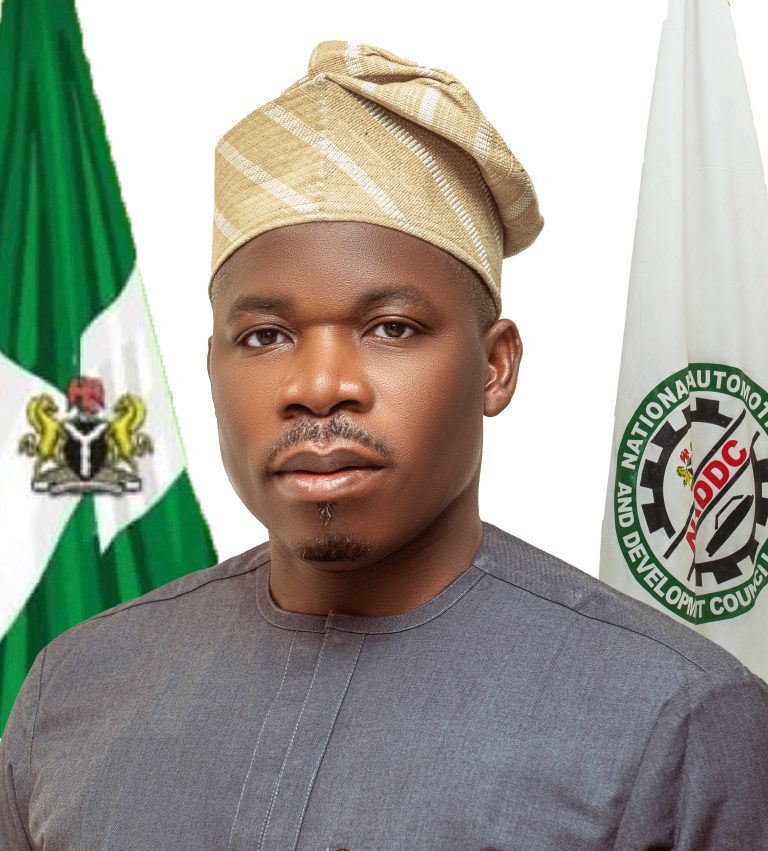
Nigeria’s automotive industry is in limbo due to prolonged delay in enacting the required law to give investors the right direction.
Head of the Auto Sectoral Group of the Lagos Chamber of Commerce and Industry (LCCI), Mr. Kunle Jaiyesinmi, stated this, noting that the industry was being allowed to stagnate, making it difficult to galvanise the overall development of the Nigerian economy
Jaiyesinmi who is Deputy Managing Director of CFAO Motors, spoke in Lagos on the sidelines of the 2024 Nigeria Auto Industry Awards organised by the Nigeria Auto Journalists Association (NAJA).
He said, “For now, we are in limbo. We don’t know what is happening to the (auto industry) policy; whether it’s with the Executive or it has gone to the National Assembly. We don’t have information on the stage that the policy is. I think NADDC is coming up with a stakeholders’ meeting maybe they would give us a very detailed information on the policy.”
In his assessment of the performance of the business this year, he lamented that the macroeconomic challenges including the high exchange rates and inflation were adversely affecting vehicle salesmmm
He said, “2024 has provided a topsy-turvy ride looking at the state of the economy. The purchasing power has been so much eroded (due to) the depreciation of the naira (the exchange rate).
“Prices have risen to a level that most private consumers cannot really afford it (new car). You notice that the major corporates are really suffering. You can imagine how much they lost in terms of exchange rate.
“So that has really impacted the procurement of new vehicles… We have more of automobile maintenance service rather than new sales.
“If you look at the market figure, it has so much reduced compared to what we had been having when the exchange rate was around N450, N480. So it’s not been a very good year for automobile business.
Jaiyesinmi also spoke on the high interest, which is over 33%; as well the recently announced government-back N20 billion auto finance.
He said, “Automobile loan is a no-go area for consumers. It’s a bit tough now. Reliance is on government now and it’s not everybody that can do government business.
“We are just looking at 2025 to be a better year going by the appreciation of the naira in recent times. We are just praying that it can be sustained. If we are able to get that into the new year maybe vehicle prices would reduce and based on the government providing very good enabling environment for businesses to thrive.”
Speaking on the N20bn auto finance scheme by the credit corporation (CreditCorp), he said, “The N20bn scheme is even belated because when the Auto Policy started about 10 years ago, the 35 per cent tariff being charged on fully built vehicles, the understanding we had then was that part of it would go to the auto financing and the other part would go to automobile assemblers’ facility.
“In 10 years, nothing happened and we know how much has been collected by the Federal Government from that levy.
“So N20bn is a paltry amount and the scheme is coming up a bit late. Looking at the local assembling, how many assemblers are we really having in Nigeria? Those of us that started eight, nine years ago, almost all of us have really closed shop.”
He however expressed optimism that the new Minister of Industry, Trade and Investment, Dr Jumoke Oduwole, would turn things around.
“I believe she should be able to drive this policy. She should try as much as possible to run away from the era of deceit. She should face reality and I believe as a realist, her tenure would portend a good tiding for the automobile business,” he said.
-

 Railway1 day ago
Railway1 day agoLagos Rail Mass Transit part of FG free train ride – NRC
-

 metro13 hours ago
metro13 hours agoWhy we displayed ‘Jesus Christ is not God’ banner at Lekki mosque -Imam
-

 metro2 days ago
metro2 days agoCourt stops customs from seizing imported rice in open market
-

 metro3 days ago
metro3 days agoIbadan stampede: Tinubu orders probe as death toll hits 40
-

 metro2 days ago
metro2 days agoIbadan stampede: Ooni reacts after arrest of ex-wife
-

 metro2 days ago
metro2 days agoAfe Babalola: Court grants Dele Farotimi bail, barred from media interviews
-

 metro1 day ago
metro1 day agoNIMC warns against extortion, reaffirms free NIN enrollment
-

 News3 days ago
News3 days agoAdebayo Ogunlesi, 2 other Nigerians make Forbes 50 wealthiest Black Americans list 2024



